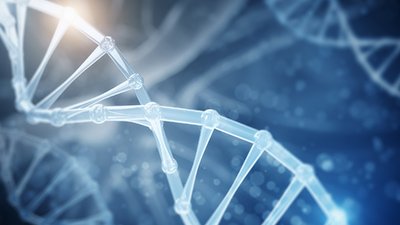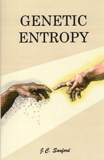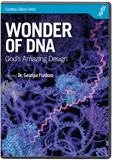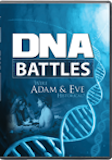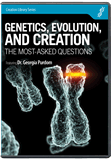
Circadian Clock Protein Identified By Researchers
What does jetlag have to do with fruitflies and morning-glories?
News Source
Jetlag is the modern curse of our circadian rhythm. Just as with air-traveling humans, organisms as diverse as cyanobacteria, plants, and animals initiate their many responses to light with remarkably similar molecules. Thus, our bodies’ expectations of rest and the opening of flowers in the morning are influenced by similar light-sensitive proteins.
Proteins called cryptochromes and photolyases mediate responses to light and dark in all organisms. Cornell scientists, by determining the before-and-after shape of fruit fly cryptochrome (dCRY) molecules, have started unraveling the mystery of how light uses the same key to unlock so much in so many.
“The aim of the study was to understand the structure of dCRY at the molecular level,” says co-author Anand Vaidya. Identification of the structure of dCRY is “a starting point to understand the function and mechanisms of the protein.”
Diurnal cycles are regulated by a tug-of-war between proteins. Some proteins activate genes related to “light-driven” activities. Other proteins—aptly named “timeless”—dampen those effects. Cryptochrome (dCRY) molecules, when activated by light, destroy the “timeless” proteins so light-related functions can go forward.1 Similar molecules, called photolyases (PL), repair DNA damage caused by light. Thus, both PL and dCRY reset the biological clock to gear up for the day.
Regardless of the organism and the myriad of effects they promote, the CRY and PL molecules have many structural similarities. Therefore, biochemist Brian Crane asserts, “Another intriguing aspect of cryptochromes is that they are evolutionarily related to enzymes called photolyases, which use light to repair damage to DNA caused by ultraviolet radiation.”
dCRY binds to “timeless” proteins so that an ironically named molecule—E3-ubiquitin ligase jetlag—can destroy it.
The Cornell team discovered that light causes the dCRY molecule to change shape. With this shape dCRY binds to “timeless” proteins so that an ironically named molecule—E3-ubiquitin ligase jetlag—can destroy it.2 Then the organism gets on with its day. So without some ubiquitous jetlag, the creature doesn’t really have much get-up-and-go!
The “light”-altered dCRY also fits into the slot on the PL molecule that normally binds the DNA it repairs.3 Such molecular matches are interpreted by evolutionary scientists as evidence for common ancestry and evolutionary development. However, the ubiquitous presence of these molecules throughout the living world and the remarkable complexity by which the same molecules plug into a variety of functions does not prove anything about how those molecules and their interactions developed. If anything, they exemplify irreducible complexity, for corresponding molecular parts must exist simultaneously in multiple organisms and systems before any “evolutionary advantage” would be selected.
God created all living things to live in the same world with similar biochemistry. As a good Engineer, God used the same designs in many creative ways. We share not common ancestry but a common Designer with all living things.
For More Information: Get Answers
Remember, if you see a news story that might merit some attention, let us know about it! (Note: if the story originates from the Associated Press, FOX News, MSNBC, the New York Times, or another major national media outlet, we will most likely have already heard about it.) And thanks to all of our readers who have submitted great news tips to us. If you didn’t catch all the latest News to Know, why not take a look to see what you’ve missed?
(Please note that links will take you directly to the source. Answers in Genesis is not responsible for content on the websites to which we refer. For more information, please see our Privacy Policy.)
Footnotes
- Brian D. Zoltowski et al., “Structure of Full-length Drosophila Cryptochrome,” Nature, December 15, 2011, doi:10.1038/nature10618.
- Ibid.
- Ibid.
Recommended Resources

Answers in Genesis is an apologetics ministry, dedicated to helping Christians defend their faith and proclaim the good news of Jesus Christ.
- Customer Service 800.778.3390
- © 2024 Answers in Genesis

